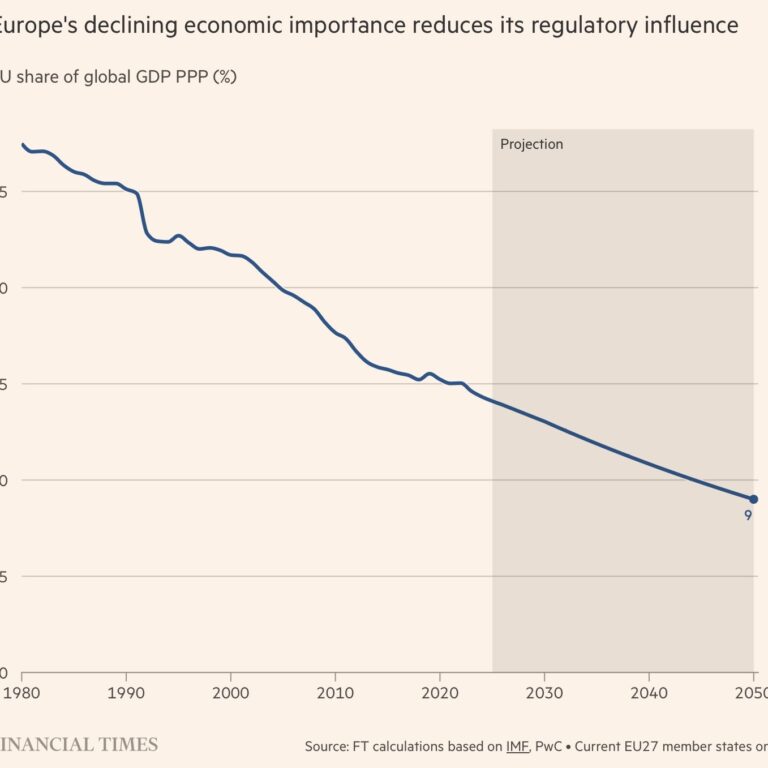Context
Since the launch of Chat GPT we can surely say that AI is eating the entry-level white-collar job market, and honestly, it might be even more dramatic than that sounds.
Historically, entry-level jobs have been the safe, comfortable (or not) ladder stairs into adulthood. Those internships, first analyst positions, junior copywriting roles where recent grads do tasks no senior wants to do. You know, the kind of jobs where you learn how to send professional-sounding emails, why your spreadsheet always crashes, and how to actually contribute and learn from a business meeting. Now, those very same jobs are prime targets for our increasingly sophisticated GPTs. Companies are figuring out they can get ChatGPT and other AI models to handle grunt work cheaply, quickly, and without ever complaining about work-life balance.
We start to see companies that are openly acknowledging they don’t really need junior employees anymore. Why pay for human effort when an AI can churn out social media posts or junior-level coding with zero coffee breaks and zero salary demands? And this is not just anecdotal: recent college graduate unemployment rates have climbed alarmingly to 6.6%, significantly higher than the national average. That’s terrifying. And that’s a clear signal that the junior-job training wheels might be permanently falling off.

On Bachelor and Master studies
First, let’s talk Bachelor degrees. If we’re honest, many of these degrees have been coasting on inertia for decades, churning out graduates whose most advanced skill is dealing with the campus bureaucracy. This won’t cut it anymore. Undergraduate education needs a serious upgrade: deeper analytics, substantial technological fluency, serious AI literacy, and genuinely useful practical knowledge should no longer be Master’s-level exclusives. If you’re graduating with just generic ‘soft skills’ and some vague sense of optimism, you’re basically paying tuition or wasting time to walk straight into economic irrelevance.
Then, the Master programs. Traditionally, Master’s degrees are where students spend a bit more money and a bit more time to gain slightly more advanced versions of what they already learned in undergrad. But that incremental model won’t survive AI’s ruthless efficiency.
Master programs now need to stop pretending they’re just slightly harder versions of undergrad and instead become compressed accelerators into senior-level capability. The bar is higher now. Graduates must not only have strategic vision and decision-making skills, but they need to be fluent in model architecture, prompt engineering, fine-tuning AI systems on real company data, and debugging misaligned outputs with the finesse of someone who knows both Python and business KPIs.
They should train on actual enterprise data, anonymized but messy, so they can learn to distinguish between algorithmic hallucination and operational insight. They should be running comparative tests on LLMs, building micro-agents, and translating these into business recommendations, in cross-disciplinary teams that include psychology majors, engineers, and designers. Business schools should be more like AI product labs and less like polite seminar rooms where everyone waits their turn to speak.
Every Master student should leave with at least one real-world consulting project under their belt, preferably for a company that didn’t even realize how broken its data pipeline was until the students showed up. Mix in entrepreneurial sprints, VC simulations, and shadowing AI product managers. Teach them to operate at the intersection of domain knowledge and systems thinking. Because that’s where the value will be, and frankly, it’s where the robots still stumble.
Instead of “conclusions”
We must understand that just tweaking existing programs is not going to work. Universities must rethink the entire idea of skill development. With traditional career ladders collapsing, the way we cultivate future leaders also breaks down. Universities need to step into this breach and teach genuine adaptability, lifelong learning strategies, and how to continually reinvent oneself professionally. Below is what is proposing the World Economic Forum:

Moreover, new job categories and disciplines will inevitably emerge. There’s a looming wave of jobs involving oversight and management of AI itself: AI auditors, algorithm ethicists, AI integrators and so on. Someone, somewhere, needs to be ready to debug the robots when they go rogue (or at least when their outputs turn weird). Universities could and should lead here, but they have to break free from bureaucratic slowness. Institutions that refuse to adapt risk becoming irrelevant; imagine still teaching Morse code when everyone else has smartphones and personal GPTs.
Ignoring these trends or responding too slowly risks universities becoming the exact dinosaur stereotypes their harshest critics describe. The higher-education industry’s famed inertia can’t be a luxury anymore. It’s a genuine existential risk, not just for universities, but for the millions of young graduates relying on them to cope with the economy’s seismic shifts.
In short, AI it’s already here: ordering coffee, answering emails, and doing everything junior workers used to do, but faster and cheaper. Universities can either adapt to this new reality rapidly and intelligently or watch as the ground beneath their feet erodes. The stakes aren’t merely academic, they’re existential.
Selective bibliography:
Ellis, L. and Bindley, K., 2025. AI is wrecking an already fragile job market for college graduates. The Wall Street Journal, 28 July. Available at: https://www.wsj.com/lifestyle/careers/ai-entry-level-jobs-graduates-b224d624 [Accessed 29 July 2025].
Ethier, M., 2025. ‘We’re not learning anything’: Stanford GSB students sound the alarm over academics. Poets & Quants, 23 July. Available at: https://poetsandquants.com/2025/07/23/were-not-learning-anything-stanford-gsb-students-sound-the-alarm-over-academics/ [Accessed 29 July 2025].
Jobs for the Future, 2025. AI and entry-level employment: Emerging crisis or growing pains? LinkedIn, 21 July. Available at: https://www.linkedin.com/pulse/ai-entry-level-employment-emerging-crisis-growing-zf5bc [Accessed 29 July 2025].
Sinofsky, S., 2025. [@stevesi] AI is rapidly eliminating entry-level jobs. What happens when there’s no apprentice phase anymore? [X post]. 29 May. Available at: https://x.com/stevesi/status/1948850787188355156 [Accessed 29 July 2025].
VandeHei, J. and Allen, M., 2025. AI jobs danger: Sleepwalking into a white-collar bloodbath. Axios, 28 May. Available at: https://www.axios.com/2025/05/28/ai-jobs-white-collar-unemployment-anthropic [Accessed 29 July 2025].
The Economist, 2025. Why today’s graduates are screwed. The Economist, 16 June. Available at: https://www.economist.com/finance-and-economics/2025/06/16/why-todays-graduates-are-screwed?giftId=dfb5e4ea-90a6-488d-b150-78d04e9d4f39 [Accessed 29 July 2025].




